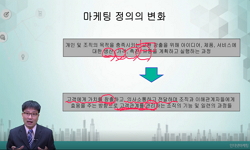The objective of this article is to analyze interaction justice as an antecedent of agency's commitment, moral hazard and perceived performance in power-asymmetry relationship. The franchise system to study in this research is a good example of power-...
http://chineseinput.net/에서 pinyin(병음)방식으로 중국어를 변환할 수 있습니다.
변환된 중국어를 복사하여 사용하시면 됩니다.
- 中文 을 입력하시려면 zhongwen을 입력하시고 space를누르시면됩니다.
- 北京 을 입력하시려면 beijing을 입력하시고 space를 누르시면 됩니다.
힘의 불균형 계약관계에서 甲의 상호작용공정성이 乙의 몰입, 도덕적 해이 및 지각성과에 미치는 영향 = The Effects of Principal's Interaction Justice on Agency's Commitment, Moral Hazard, and Perceived Performance in Power-Asymmetry Relationship
한글로보기부가정보
다국어 초록 (Multilingual Abstract)
The objective of this article is to analyze interaction justice as an antecedent of agency's commitment, moral hazard and perceived performance in power-asymmetry relationship. The franchise system to study in this research is a good example of power-asymmetry called as principal-agency relationship. Hypotheses based on justice theory, role-script theory and reciprocity norm theory were empirically tested. Major findings in this study as follows: First, principal's interaction justice increase agency's commitment and decrease its moral hazard. Especially interaction justice has more effect on commitment than moral hazard. Secondly, agency's positive attitude called as commitment decrease its moral hazard. So we can say that it is efficient to curb negative behavior by positive attitude. Third, agency's commitment and moral hazard have positive effect on its perceived performance of the relationship. Until now we has studied not principal's behavior but agency's behavior, especially the negative side. Based on these findings we can say that we as a principal don't want agency's negative behavior, we must act according to the justice principle and reciprocity principle.
목차 (Table of Contents)
- Ⅰ. 문제제기 및 연구목적
- Ⅱ. 관련이론 및 주요개념
- 1. 프랜차이즈시스템과 도덕적 해이
- 2. 역할이론과 공정성 및 몰입
- 3. 교호성 규범
- Ⅰ. 문제제기 및 연구목적
- Ⅱ. 관련이론 및 주요개념
- 1. 프랜차이즈시스템과 도덕적 해이
- 2. 역할이론과 공정성 및 몰입
- 3. 교호성 규범
- Ⅲ. 상호작용공정성, 몰입, 도덕적 해이 및 지각성과
- 1. 본부의 행동이 가맹점의 행동에 미치는 영향
- 2. 가맹점의 행동: 몰입과 도덕적 해이
- 3. 가맹점의 행동과 지각성과
- Ⅳ. 연구개념 및 자료수집
- 1. 연구개념의 작업정의 및 측정
- 2. 자료수집: 표본 및 조사방법
- Ⅴ. 척도의 정제 및 가설검증
- 1. 척도의 정제 및 연구개념 간의 상관관계분석
- 2. 가설검증
- Ⅵ. 연구결과의 논의, 시사점 및 연구의 한계
- 1. 연구결과의 논의 및 시사점
- 2. 연구의 한계 및 이후 연구를 위한 제안
동일학술지(권/호) 다른 논문
-
- 홍익대학교 경영연구소
- 朴範鎬
- 2004
-
제품의 종류와 공급체인적합성에 따른 SCM 실행수준 차이에 관한 연구
- 홍익대학교 경영연구소
- 金炯郁
- 2004
-
- 홍익대학교 경영연구소
- 李均
- 2004
-
- 홍익대학교 경영연구소
- 金東憲
- 2004




 RISS
RISS



